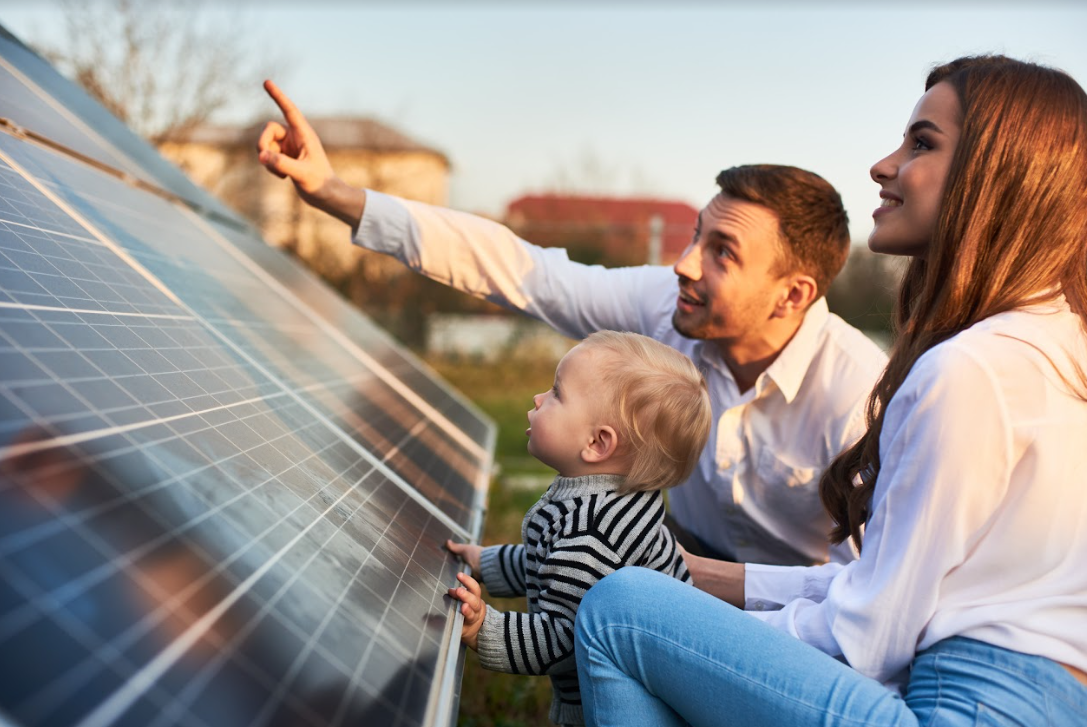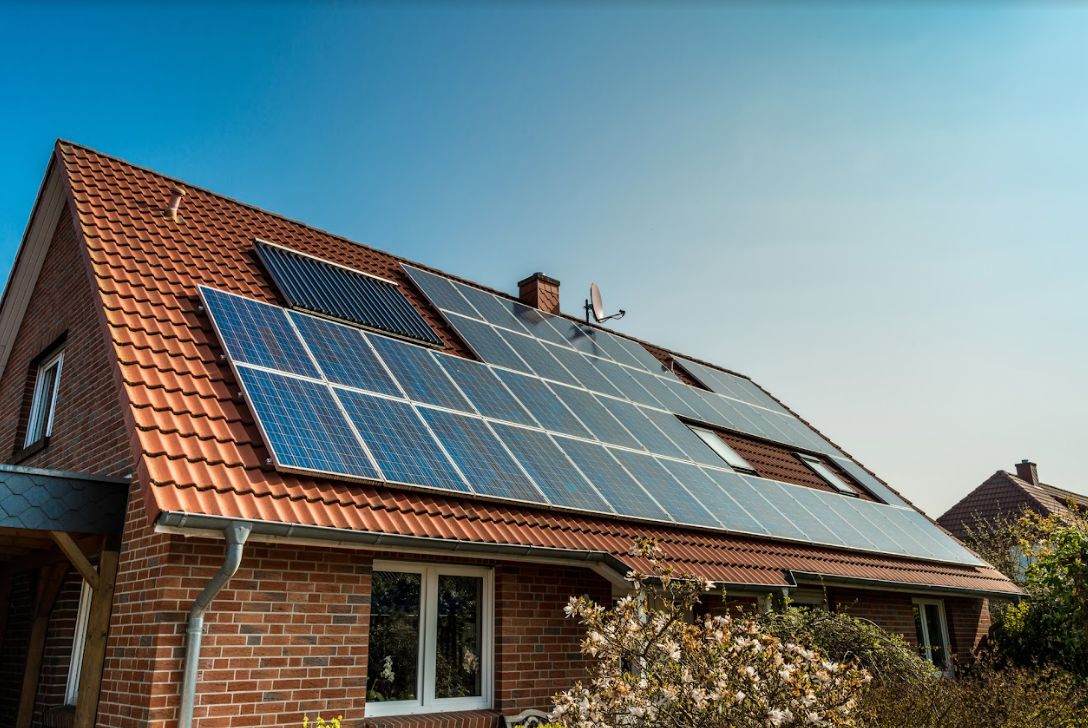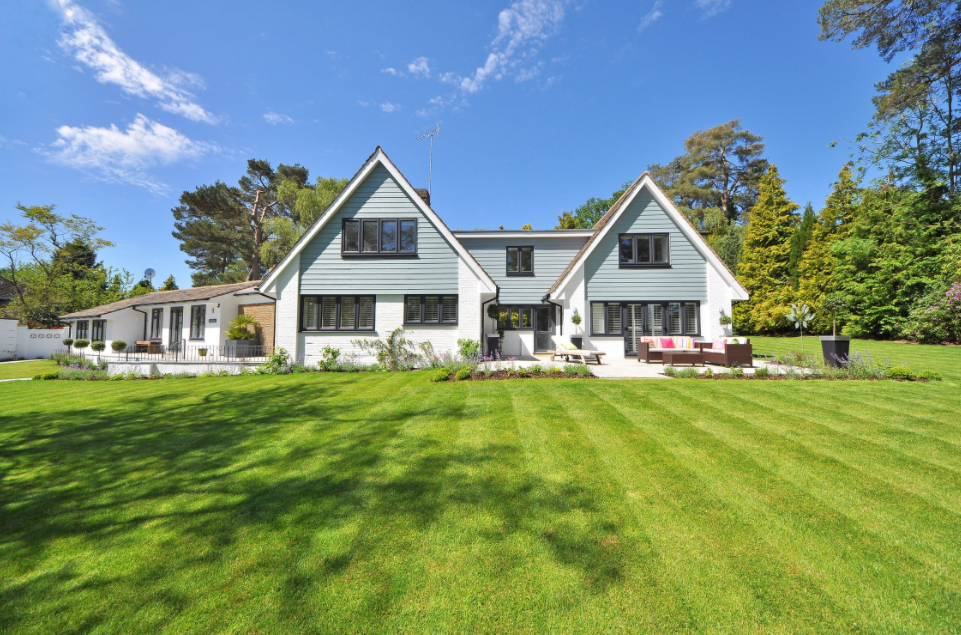A Guide To Home Solar Systems: Cost, Benefits, And More

If you are thinking about installing solar panels, then this article is for you!

Photos By: Adobe Stock Images
Centuries ago, electricity was nothing but a concept. Now, it’s one of the essential resources humans can hardly live without. It’s what powers and keeps home appliances, mobile devices, and even cars up and running.
However, there’s an issue with non-renewable energy resources (e.g., natural gas, coal, and nuclear energy). They are irreplaceable and might cause serious environmental problems. That’s why many homeowners prefer using renewable ones, particularly solar energy.
Solar energy is a type of renewable energy that can be harvested from the sun. It’s a smart and eco-friendly alternative to conventional energy sources that can hurt the environment. If you want to use solar energy to power your home, you’ll need a home solar system.
A home solar system comprises devices that harness and convert sunlight into solar energy. Once converted, you can use them to power your appliances, charge your mobile devices, and start the engine of your e-vehicle.
Do you want to know more about home solar systems? If you do, you’re in the right place. This post will discuss home solar systems, including benefits, costs, and more.
What Is A Home Solar System?
A home solar system harnesses and converts sunlight into solar energy. It consists of the following components, such as:
- Solar Panels – Solar panels are arguably the most important part of a solar energy system. They capture and convert sunlight into electricity through the photovoltaic (PV) effect. It can also store sunlight for later use.
- Inverter – An inverter is another important piece of a solar energy system. It converts direct current (the electricity solar panels produce) into alternating current (the electricity grids use).
- Racking – Racking helps affix a solar energy system to different locations, such as carports, ground awnings, and roofing surfaces. It’s usually made of metal, and its orientation can be tilted to a diagonal angle.
If you’re living off the grid (not being physically tied to utility wires), you might need the following additional parts, such as:
- Solar Batteries – Living off the grid doesn’t give you enough resources to store the excess solar energy you produce for later use. That’s why you need solar batteries, which store the excess electricity your solar panels generate.
- Charge Controller – Charge controllers are used to regulate the current and voltage generated by solar panels. This prevents solar batteries from overcharging. Also, it can accelerate battery charging by around 20-30% per day.
These components are connected by fuses, disconnects, breakers, and cables. You can also monitor your system online to determine and troubleshoot possible issues.
If you’re interested in a home solar system, you may visit Smart Solar Energy home solar or other similar providers in your area.
How Much Do Home Solar Systems Cost?
On average, home solar systems may cost USD$16,000, or between USD$4,000 to USD$30,000, depending on the panels used. Although solar energy systems can help you save a lot in the long run, setting a budget is important because they’re not a cheap investment.
Below are the costs of solar systems depending on the type of solar panels:
- Monocrystalline – This is arguably the most energy-efficient solar panel. It costs USD$1 to USD$1.50 per watt. Therefore, a 5kW home solar system may cost between USD$5,000 and USD$7,500.
- Polycrystalline – This is cheaper than monocrystalline panels but is less energy-efficient. It costs USD$0.90 to USD$1 per watt. Therefore, a 5kW home solar system may cost between USD$4,500 and USD$5,000.
- Thin-Film – This may cost like monocrystalline panels but is more affordable. However, thin-film solar panels require a large installation space, making them suitable for industrial facilities.
However, note that there are other factors, aside from panel types, that may affect the cost of solar system installation:
- Manufacturing Companies – Well-known solar brands are more expensive than those that aren’t, but that doesn’t mean less popular brands aren’t good.
- Federal Solar Tax Credit – Installing solar systems gives you federal solar tax credits, which can help reduce your tax bills.
- Solar Installer – Solar installers have varying prices depending on the services they provide and the equipment they use, including add-ons.
- Location – The cost of solar panels may vary from state to state. This is because states have varying incentives and average sizes.
- Roof Pitch – The characteristics of your roof may also affect the cost. Installers may ask for additional charges if they find it difficult to install solar panels.
Since solar systems can be a costly investment, it’s also important to consider the benefits they bring to your home. Read on.
What Are The Benefits Of Home Solar Systems?
Home solar systems bring tons of great benefits, including:
- It Promotes A Healthy Ecosystem
Home solar energy systems are better for the environment than any energy source, particularly non-renewable ones. They don’t release harmful greenhouse gases and don’t contaminate clean water sources.
On top of that, home solar systems require less maintenance water than nuclear power plants, which need at least 20 times more water. Also, they don’t produce noise that may aggravate other people, making them perfect for urban and highly-populated areas.
- It Reduces Energy Consumption
Using a home solar system enables you to generate your own electricity. This reduces the amount of electricity you need from your supplier, helping you save more money in the long run.
Aside from that, you can also use your solar system to make extra income. You can sell the excess energy you produce back to your supplier. The more energy you generate, the less energy you’ll need from the grid, and the higher income you’ll make.
- It Fits Everywhere
Another great thing about home solar systems is that they can be installed anywhere you want, whether on top of a mountain or in the desert. As long as there’s sunlight to convert, solar energy systems will work without any problem. This makes them a great solution for those who don’t have access to electricity across the world.
Home solar systems can improve the lives of millions of people, especially those with no access to the local electricity supply. In case you don’t know, solar energy is also used to power vessels and spacecraft.
- It Reduces Electricity Lost During Transport
Did you know that 3-5% of electricity is lost during the process (e.g., transportation and distribution)? That may be small, but it can translate to a hefty cost over time and influence how electricity flows, especially in highly-populated regions.
Home solar systems, particularly in the yard or roof, can help reduce the energy lost during the process. This may increase the efficiency of your solar panels.
- It Helps Improve Grid Security
If you’re living in a region with a few power plants, the chances of experiencing recurrent blackouts are high. That’s because there aren’t enough power plants to efficiently supply, transport, and distribute electricity.
But don’t worry; home solar systems can help improve grid security. The excess electricity your solar energy systems produce may help stabilize the grid’s electricity supply, especially when natural or artificial disasters strike.
- It Increases Home Value
Home solar systems are considered upgrades or investments, just like a remodeled basement or a renovated kitchen. Therefore, installing a solar energy system may help increase the value of your home in the market.
Experts believe investing in a solar energy system can increase home value by USD$15,000. Nevertheless, system size and electricity rates must be considered to create a more accurate estimate.
When Should You Install A Home Solar System?
Most people believe winter is the worst time to install a solar system, but it’s not. Winter might be the best time due to less demand for services, which pulls the overall cost down. Also, it’s more efficient. Since solar companies have fewer jobs during winter, your panels will likely be installed as soon as possible.
Regardless of the season, you should consider installing a home solar system whenever possible to start saving. The sooner you install one, the higher the savings you can enjoy.

Can You Install Solar Panels Yourself?
Absolutely! You can install solar panels yourself, even if you don’t have much experience in do-it-yourself (DIY) tasks. That’s because most components involved are plug-and-play.
Every port has a designated cable, meaning you’ll never get confused about where to put this and that while installing your panels. And if you can lift heavy objects and tighten screws, then you can install your own solar system.
However, it’s not easy to complete electrical tasks. In this case, it might be better to hire a professional electrician to help you out. This will still help you save more than hiring a professional solar installer.
Do Home Solar Systems Require Maintenance?
Home solar systems only require little maintenance tasks. These are often centered on removing debris off the surfaces, which can block sunlight and affect production.
If you live in snowy regions, make sure to brush off the snow that covers the panels. Consider using a broom or a soft brush to avoid scratching the glass surface of your solar panels.
The same goes for those living in dry regions. Brush off dust and dirt particles that may settle on your panels. It’d be better to do this regularly to ensure maximum sunlight absorption.
Final Thoughts
Installing home solar systems is a great way to help preserve the environment and boost your savings. It typically costs between USD$4,000 and USD$30,000, depending on the type and number of panels used.
Although you can install a home solar system yourself, consider hiring a professional installer if you’re uncomfortable performing all the tasks alone. Once installed, keep your panels clean by removing anything that prevents panels from absorbing sunlight efficiently.






